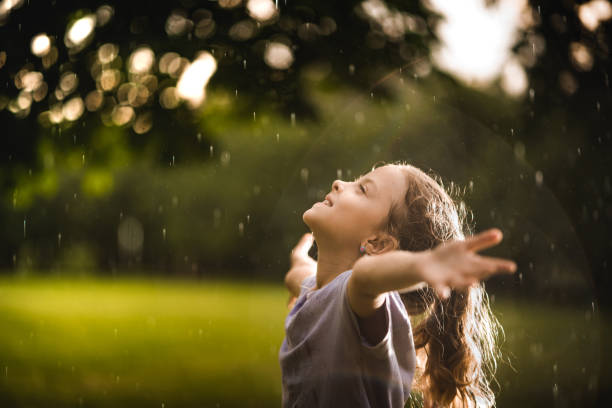
The debate around people’s ability to coexist with nature is a heated one that engulfs many disciplines. There are many that would say human lifestyle, greed and consumption are inherent traits. That, fundamentally, humans and nature can never sustainably coexist in a way that would perpetuate both entities for millennia.
There are those that debate that the only solution to our current dilemma is to wall off humanity from nature, remove our ability to interact with it and therefore damage it. In the Half-Earth debate, there is an allotted half the globe for us, half for nature. People are to live in highly urbanized environments, guarded from our own destructive impulses to preserve enough biodiversity that we can still survive. But at what cost to our wellbeing?
If we assume that humanity is at odds with nature, then what does that make us? We are a result of the same evolutionary processes that created trees, whales, and butterflies. Thousands of years of natural selection and gene flow brought us to this destination. We are intelligent, specialized, and community driven, but we ultimately are just as much a part of and a result of nature as any other living thing.
There is a psychological hypothesis called biophilia. Biophilia states that humans have an innate desire to connect with, bond with, and just generally be surrounded by nature. It is a genetic predisposition to be attracted to natural spaces, an inherited trait to love nature. Desire to be surrounded by greenery is a fundamental quality of the human psyche because it is part of who we are as a species.
This feeds into another psychological concept: species loneliness. We are isolated from the interconnected web of species and the companionship that being a part of the natural system brings. The most widely applicable example is the relationship between people and their pets or every little girl wanting to live like Snow White and be greeted by her bird and deer friends. Maybe that is something that we lose less fantasy for as we get older, but, at least for me, there will always be a longing to feel a sense of community among other species. Have you ever felt envious of someone “chosen” by their pet or a wild animal? The sense of camaraderie amongst species, that they see us, and we see them despite our differences.
Species loneliness is compounding upon the social isolation that affects so many in the world of technology. We are distanced from the larger community of which we no longer see ourselves as a member. It has become us versus nature, versus each other, instead of a recognition that we are part of the same bigger picture on the same blue marble.
The solution to wild space protection as we move into the future is not creating a deeper divide between people and nature. We are not inherent adversaries to the natural world. The practices we have developed have ingrained that the environment is a commodity, something to be tamed, something incompatible with societal wellbeing and growth.
This might have been something I agreed with until learning more about Native American relationships with the land and their practices of reciprocity. In many of these cultures, humans are the younger siblings to the rest of nature, whose purpose is to act as students to the lessons of nature and storytellers to preserve and share those lessons. There was a familial bond between humans and the resources they relied on.
Humans play an invaluable role within a functioning ecosystem, the same as any other species. In many situations, the meadows that so many species rely on would turn to forest without human intervention. We create habitats that benefit other species. We cause disturbance that allows certain species to flourish. We are an apex predator that, without over-exploitation, keeps populations in check and helps others grow. Natural balance and coexistence are attainable goals.
I believe that what we need is to restore our relationship with the natural world. Children that grow up in inner cities may go their entire lives without truly seeing a forest, the ocean, the stars. There is such a vast disconnect. If you never have the opportunity to experience wild spaces, then there is little emotional connection to wanting to protect them. It is a nurture over nature scenario. If your life experiences condition you to fear or not place value in nature, hypothetical evolutionary predisposition from biophilia would likely be overridden. We are a product of our experiences.
Segregating people from nature is not the solution to preserving it. It will hammer the wedge further into our isolation from our world. Green spaces need to be accessible. There needs to be a sense of community ownership and belonging to our environment. We have such a golden opportunity to solve so many of our global mental health problems and habitat loss. Bringing people together around a shared resource to create a sense of community. Build relationships with each other, repair relationships with our environment, foster the desire to protect that which brings us together.
Everyone wants good food and clean water; everyone wants a bright future for their children. We have a common goal. It is important and it is good to have diversity in beliefs on how to get there. There is never going to be one perfect answer. You don’t have to agree with what I believe. At the end of the day, we can agree that we want to pass the world to the next generation a little better than it was given to us.

One response to “Living Alongside Nature”
I love the way you write. Your writing is very personal and I can tell you put a lot of time and effort into it. I know you’ll be great and I can’t wait to see how far you will go in the future. -CJ